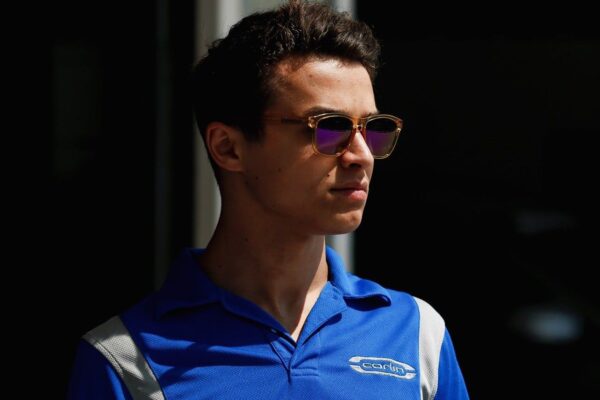
Introduction
Jolyon Palmer, a prominent figure in the world of motorsport, is best known for his time as a Formula One driver and his subsequent career as an analyst. His journey within the racing industry highlights not just his personal achievements, but also the evolving landscape of motorsport in recent years. With an increasing focus on sustainability and technology in racing, Palmer’s insights and experiences provide valuable perspectives that resonate with both fans and aspiring drivers alike.
Career Overview
Jolyon Palmer, born on January 20, 1991, in Horsham, England, began his racing career in karting before making a significant breakthrough in single-seater racing. He rose through various junior ranks, including the GP2 Series where he had a successful stint, culminating in winning the championship in 2014.
Palmer made his Formula One debut with the Lotus F1 Team in 2016 before joining Renault in 2017, where he continued competing against some of the world’s best drivers. Despite the challenges and pressures of the sport, including his eventual departure from F1 in 2017, Palmer’s contributions to the team and the sport are recognised. His understanding of both car dynamics and race strategy informed his analysis on various platforms after his driving career.
Current Endeavours
Following his retirement from Formula One, Jolyon Palmer has successfully transitioned into a role as a motorsport commentator and analyst. He has been a regular contributor to various media outlets, including the BBC and Formula 1’s official channels, where he breaks down race strategies, team performances, and driver dynamics. His commentary is shaped by his firsthand experience in the sport, which adds a unique layer of authenticity to his assessments.
Recently, during the 2023 Formula One season, Palmer’s analysis has been particularly insightful, especially concerning the impact of new regulations on car performance and the push for sustainable practices within the sport. He has also been vocal about the importance of mental health awareness in competitive racing, advocating for support systems for young drivers.
Conclusion
The legacy of Jolyon Palmer transcends his accomplishments on the racetrack. As the motorsport industry continues to evolve, figures like Palmer play a crucial role in shaping the narrative around racing, sustainability, and the mental wellbeing of athletes. His transition from driver to analyst exemplifies the potential for continued engagement in the sport, inspiring the next generation of racers and fans. As he continues to share his insights, the impact of his contributions will likely resonate through the motorsport community for years to come.
You may also like

Lando Norris: The Rising Star of Formula 1

Tyler West: A Look into the Rising Star’s Career
